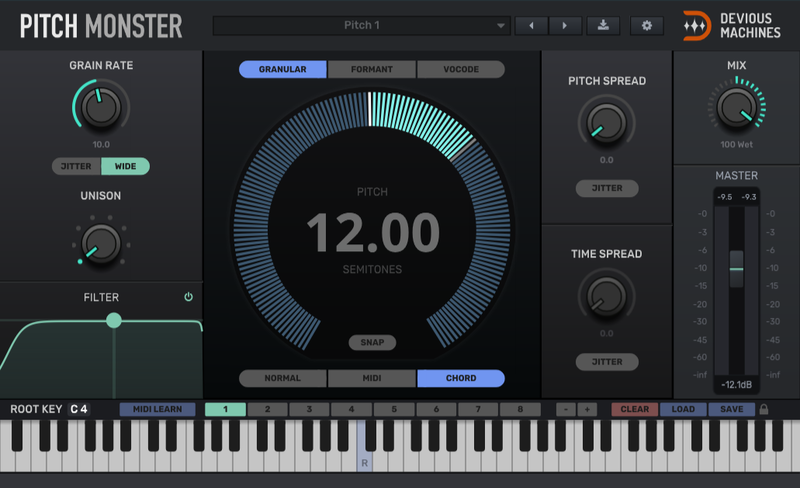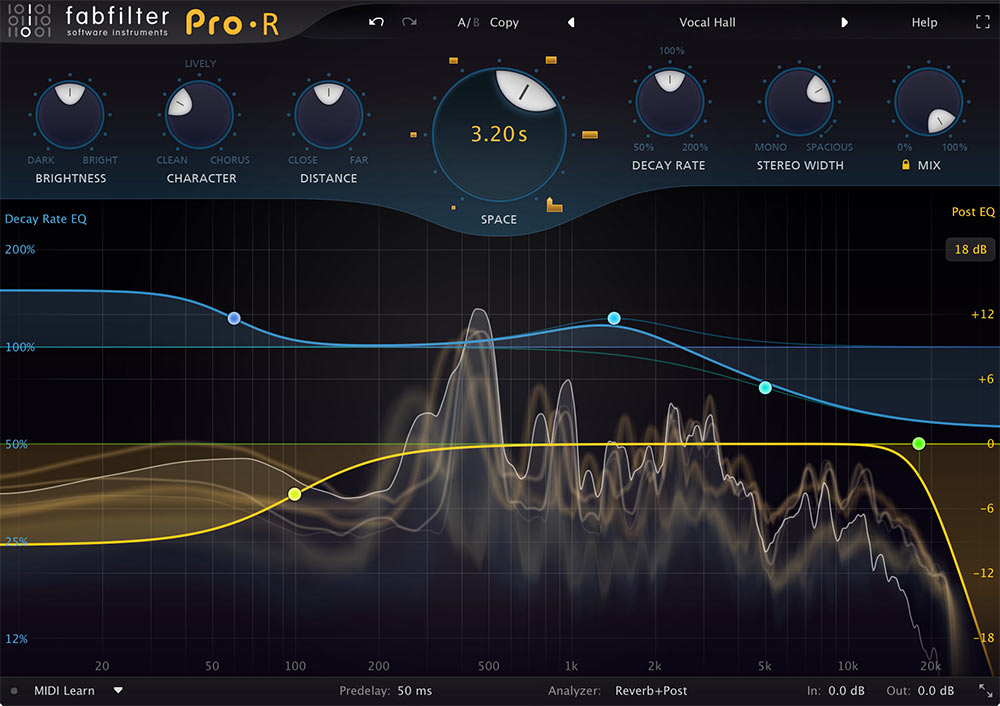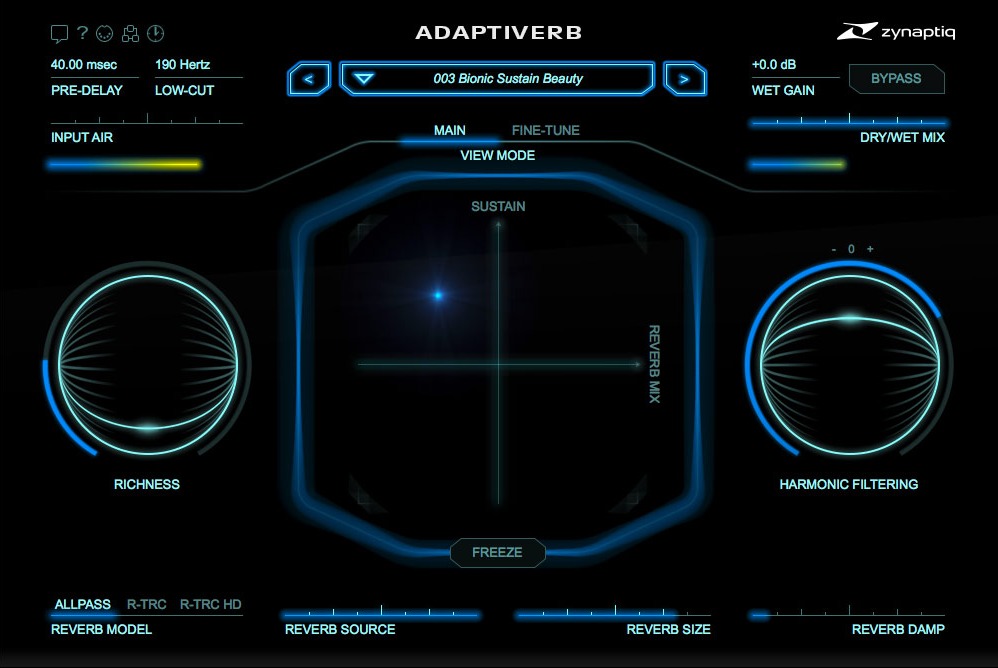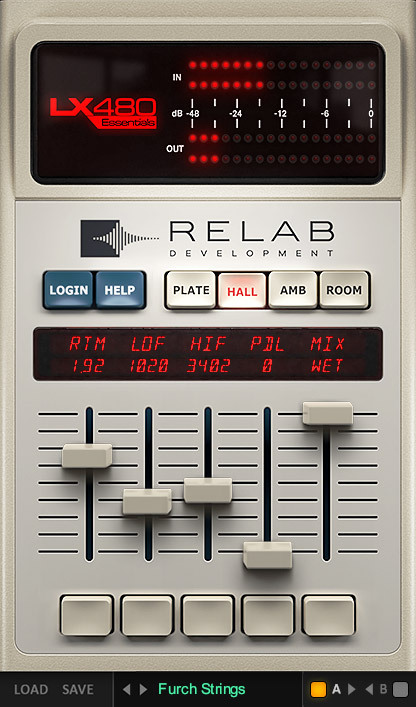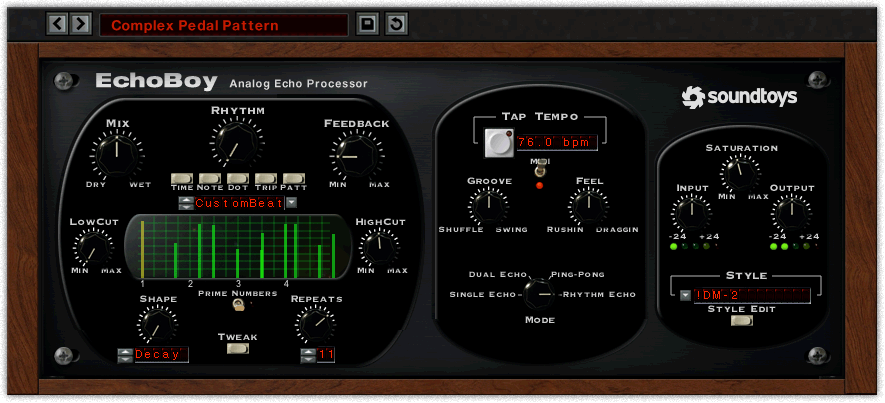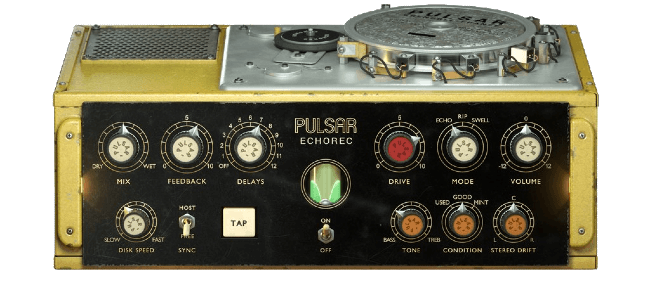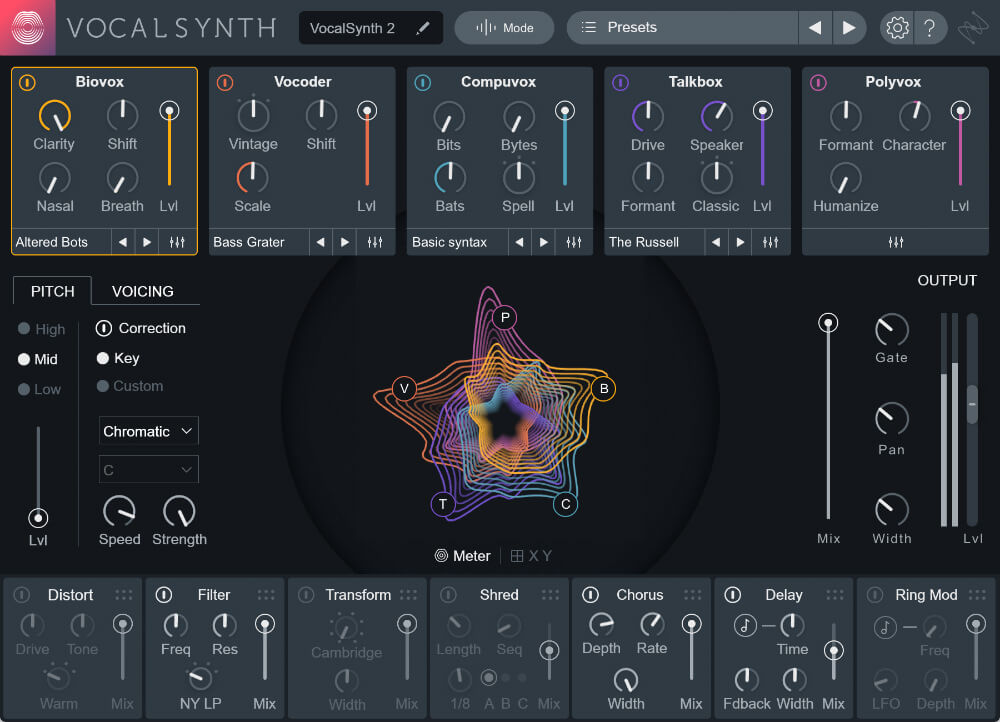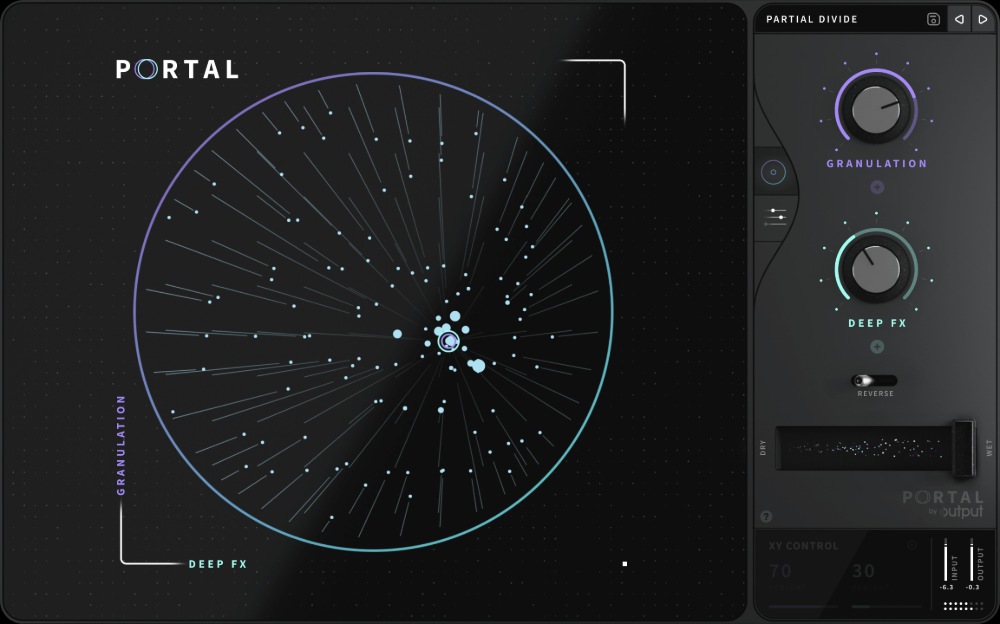
Pitch
Soundtoys Little AlterBoy
This simple and intuitive monophonic voice manipulator performs formant and pitch shifting flawlessly, but it also can take care of a variety of other vocal processing tasks that you mightn’t expect. For example, you can rewrite vocal melodies after they’ve been recorded with MIDI control, or add warm tube saturation modelled on the sounds of Soundtoys ever popular distortion plugin Decapitator.
Little AlterBoy has three modes: Transpose, Quantize and Robot. In Transpose mode, the plugin performs its primary function of pitch and formanting shifting, with natural-sounding results that stack up well against anything else out there. Quantize mode tunes incoming pitches to the nearest semitone, producing a pitch correction effect similar to Auto-Tune. Finally, Robot mode tunes an incoming signal to one note.
Devious Machines Pitch Monster
Another pitch shifting juggernaut, Pitch Monster is powered by granular, formant and vocoder engines, providing extreme control over your vocals. The plugin offers eight voices of polyphony across a 6-octave range, with each voice capable of eight voices of unison. If you do the math, that’s a maximum potential of a whopping 64 voices, giving you a deep pool of creative options for pitch processing.
With all that going on under the hood, Pitch Monster’s clean and intuitive GUI is a plus. It only takes a few clicks to change a vocal beyond recognition, whether you’re pitch-shifting with the granular engine, creating otherworldly sounds with the formant control, or playing around with the vocoder using MIDI control in real time.
Antares Auto-Tune
By far the most well known plugin on this list, Auto-Tune has well and truly crossed into mainstream vernacular, as one of those brand names that people use as generic terms, like Jacuzzi or Bubble Wrap. Introduced to the world in 1996, Auto-Tune is now a staple in recording studios and a must-have for vocalists who want a modern pop sound. In the years since it came out there have been numerous imitators, but Antares Auto-Tune is the original, and still considered the best.
The main focus of the plugin is real-time Auto-tune pitch correction, but it also features formant shifting, time correction, doubling, vintage analog vocoder emulations, tube distortion modelling, ring modulation effects and more. A Low Latency Mode option means you can record and perform without being taken out of your stride, and you can also map MIDI from the plugin to your controller of choice for more expression while you do so.
Reverb
FabFilter Pro-R
Known for their high performance and pristine appearance, FabFilter’s range of plugins are professional tools that can handle pretty much anything you throw at them. Pro-R is a premium algorithmic reverb that sounds natural and real, has impressive density and nestles perfectly into the mix without throwing up any unwanted colouration or phase issues. In short, it’s the ideal reverb to slather your vocals in.
Pro-R has dozens of room models to situate your sound, ranging from small ambiences and rooms to large concert halls and cathedrals. The plugin also boasts an industry-first Decay Rate EQ concert, which allows you to adjust the decay time over the frequency spectrum, using parametric EQ bands instead of a traditional crossover system. Combine that with the integrated 6-band Post-EQ, and you’ve got plenty of scope to design reverbs of pretty much any style.
Zynaptiq ADAPTIVERB
The list of reverbs that are built on a revolutionary new AI technique that’s similar to the technology that enables self-driving cars to avoid collisions isn’t long, but it definitely includes Zynaptiq Adaptiverb. Rather than using traditional methods of reverb tail synthesis, Adaptiverb employs machine learning, ray tracing and source separation techniques to create a tail that automatically adapts to the audio context in which it is used. No more muddy vocals or tonal clashing, this is a reverb that offers pure harmonic clarity.
Adaptiverb also has a range of sound design parameters to jazz up your vocal recordings. Richness adds fifth or octave interval harmonics, Simplify handles additive synth style timbres, Freeze creates drones and pads that play without input, and you can design cross-filtering effects with the Harmonic Contour Filter’s Hold functionality. There are also over 400 presets to play around with, including reverbs that are optimized specifically for use on vocals.
ReLab Development LX480 Essentials Collection
Modelled on the seminal Lexicon 480L reverb of the 1980s, this plugin from Relab Development captures the depth and character that the original is renowned for. Packed full of the reverb algorithms that can be found on the real deal, the LX480 plugin is a versatile reverb workhorse. Rooms, halls, plates, ambience, panorama and delays are all available here, as well as a number of modern technological features that just weren’t available in the 80s: continuous controls, additional filter structures and stereo manipulation bring added functionality to the LX480 Complete.
While this plugin offers a deep and comprehensive level of control, at times you might just want to quickly add some reverb to your vocal. Thankfully, the LX480 comes bundled with a ton of presets carefully crafted by both Relab Development and industry professionals, meaning great-sounding reverb is just a few clicks away. For those on a budget, there’s an LX480 Essentials option which boasts the same smooth sound as the Complete option, with a slightly stripped back feature list.
Delay
Soundtoys EchoBoy
When it comes to delay plugins that will go well with a lead vocal track, there aren’t many better than Soundtoys EchoBoy. Embracing the sounds of high-end vintage studio gear like EchoPlex, Space Echo and Memory Man, EchoBoy takes decades of echo device history and blends it with modern features to create an instant classic.
All in all, there are 30 built-in styles modelled on classic hardware units to play with, that also include extras like CE-1 chorus emulation, considered a holy grail of guitar chorus pedals, and a smooth saturation effect inspired by the Ampex ATR-10 half-inch two-track machine. Dispersed throughout EchoBoy’s straightforward GUI are parameters for fine-tuning your delays, like Groove, Feel and Accent. The plugin’s Rhythm Echo mode is a highlight, allowing you to select the rhythmic timing of up to 16 repeats.
Arturia Delay ETERNITY
Some delays aim their sights at iconic hardware units of the past, while others go the other way and aim for complete originality in the digital realm. Both approaches are appreciated, so don’t start taking sides, but the two camps offer totally different flavours of delay to bring into your productions. Arturia Delay Eternity is in the second camp, a modern creative digital delay effect with deep modulation potential, multiple delay lines, bitcrushing, filters and more.
Delay Eternity sprang from the same well as Arturia’s award-winning, next-gen software synth Pigments, and you can tell. There are multiple time-processing modes including repitch, digital cut and digital fade, a powerful integrated EQ, and a bit crusher and three different filter choices in the feedback path. Modulation is taken care of by either using the incoming signal itself to affect any of the delay parameters, or via the plugin’s twin LFOs and dynamic envelope follower.
Pulsar Audio Echorec
After finding favour among artists like Pink Floyd, Led Zeppelin and The Shadows, the Italian-made Binson Echorec 2 delay units became highly desirable thanks to the unique saturation and character they add to signals. Being a magnetic disk delay, the Echorec offered a unique sonic aesthetic compared to the ubiquitous tape delay.
Three original delay units were modelled in order to simulate how different states of wear affect the overall sound of the effect, and this Pulsar emulation lets you choose between those three states. The plugin also offers three delay modes, tone controls, stereo drift control for super-wide delays, and off mode, for when you want the authentic warmth of the device’s tube but without the delay.
Creative
Krotos Dehumaniser Simple Monsters
Tuning, reverb and delay are all common fixtures in a vocal chain, and their effects are usually quite straightforward. There are other plugins, though, that provide more unusual methods of vocal processing. Krotos’ Dehumaniser Simple Monsters plugin is tricky to categorize, but the general use for it is transforming audio into unrecognisable sounds which resemble monsters, creatures, robots and other unsavoury beings.
A real potential favourite among sound designers, this device’s simple layout contains just five dynamic parameters, six sliders and two X/Y pads for quick and easy audio manipulation. Don’t let the straightforward controls fool you though, Dehumaniser Simple Monsters is capable of creating a wide range of growls, roars, screeches and groans with just a few clicks. There are 35 presets to get you started, plus 48 life-like animal sounds to use within the scrubbing convolution module for even more realistic results.
iZotope VocalSynth 2
With its Biovox, Vocoder, Talkbox, Compuvox and Polyvox modes, VocalSynth 2 is a comprehensive toolbox of vocal processing styles. Each one of these effects is editable or has its own presets, and you can run multiple processors at the same time to get a huge variety of effects. VocalSynth can take an audio input and convert it to pitch-corrected notes in real time, or you can use a MIDI input if you prefer.
Select up to five blendable vocal synthesis models for unique morphing vocal textures. The interactive visualisations help you to see how you’re processing your audio, and a selection of output effects means it’s possible to shape your sound even further for truly varied timbres.
Output Portal
Technically, this genre-defying plugin would work equally as well under the Pitch, Reverb or Delay categories, but as it can do all of the above plus a heap more, we’ve put it under the Creative category. Portal harnesses the power of granular processing to create one of the most versatile plugins on this list. Pitch-shifted delays, stuttering glitch effects and swelling ethereal soundscapes and much more are possible with Portal.
On the main page, Portal’s X/Y pad lets you quickly control granular parameters, or you can dive into the Advanced mode for even deeper control of its many features. Alternatively, you can choose from over 250 presets across a number of core categories to quickly transform your source audio into exciting new otherworldly textures and rhythms. With its granular capabilities, pitch modulation, timestretching and additional effects, Portal is a do-it-all processor for your vocals.

